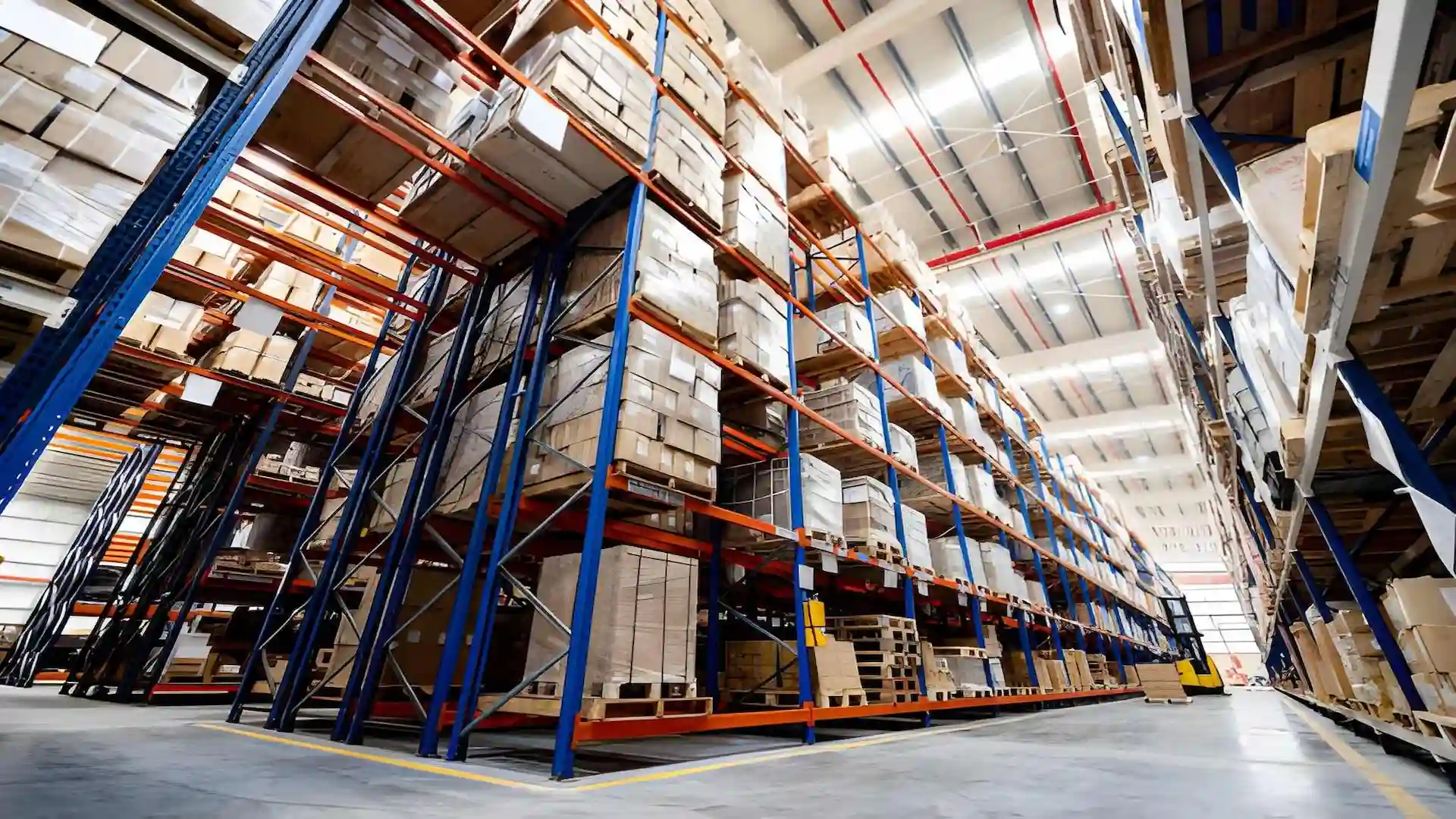Using a Fulfillment Company: Benefits, Costs, and How to Choose the Right One

Outsourcing order fulfillment has become a strategic move for ecommerce brands aiming to scale operations, meet growing customer demands, and stay competitive in a fast-paced market. With rising expectations around shipping speed, accuracy, and customer service, relying on a trusted third-party fulfillment company can create a meaningful advantage.
Brands with high order volumes or limited internal logistics capacity often face mounting pressure to manage inventory, fulfill orders quickly, and control operational costs. This is where fulfillment companies step in, not just as service providers, but as long-term partners that help ecommerce brands stay lean, efficient, and growth-ready.
Atomix Logistics stands out as a fulfillment partner that supports growing brands with technology-driven solutions, warehouse efficiency, and a sharp focus on ecommerce success. Let’s examine the benefits, cost structure, and selection criteria to help you decide if a fulfillment company is right for your business and why Atomix Logistics should be at the top of your list.
Benefits of Using a Fulfillment Company
Partnering with a third-party fulfillment company delivers several advantages that go beyond simple logistics. It supports brands in reducing operational overhead, boosting customer satisfaction, and improving delivery performance.
Cost Savings
- Carrier Discounts: Fulfillment centers often negotiate volume shipping rates with major carriers, passing those savings to clients. These discounts can reduce ecommerce shipping expenses by 10–50%.
- Lower Operational Costs: Outsourcing eliminates the need to rent warehouse space, hire warehouse staff, and purchase packing materials. Fulfillment companies provide storage, labor, and materials at scale.
- No Capital Investment: There's no need for upfront investment in infrastructure, automation, or specialized order fulfillment software.
Operational Efficiency
- Trained Staff: Experienced teams handle pick, pack, and shipping processes accurately, which reduces fulfillment errors and minimizes returns.
- Labor Management: No need to hire seasonal labor or deal with unexpected surges. The fulfillment company adjusts staffing based on demand.
- Fewer Mistakes: Professional systems and processes lead to fewer shipping errors, improving brand reputation.
Scalability
- On-Demand Capacity: Whether you're launching a product or navigating holiday peaks, fulfillment companies scale operations based on your volume.
- No Space Constraints: Easily manage a growing SKU count or shifting inventory needs without moving facilities or expanding square footage.
Fulfillment Technology
- Real-Time Inventory Management: Brands gain full visibility into inventory levels, order status, and shipping performance through fulfillment center technology.
- Platform Integrations: Modern fulfillment companies like Atomix Logistics integrate directly with ecommerce platforms such as Shopify, WooCommerce, and Amazon.
- Analytics Dashboards: Track KPIs such as order accuracy, shipping times, and returns in a centralized system.
Faster Delivery
- Distributed Fulfillment Centers: Orders ship from the warehouse closest to the customer, cutting down delivery times and shipping costs.
- Improved Ecommerce Shipping Speed: This leads to higher customer satisfaction and more repeat business.
Better Customer Retention
- Reliable Fulfillment Experience: Accurate orders and fast shipping build trust.
- Reduced Churn: Customers are more likely to return when delivery expectations are consistently met.
Understanding Fulfillment Costs
Cost transparency is one of the most critical factors when evaluating ecommerce fulfillment services. Understanding where your money goes can help you maximize profitability and avoid unpleasant surprises.
Key Cost Components
- Inventory Receiving: Ranges from $25–$50/hour or $5–$15 per pallet. This includes unloading and checking inventory into the system.
- Storage Fees: Typically $5–$40 per pallet/month, based on size and duration of storage.
- Pick and Pack Fees: Charged per item or per order. Most providers charge between $0.20–$1.00 per item or $3–$5 per order.
- Packaging Materials: Standard packaging is often included. Custom boxes or inserts may cost extra.
- Shipping: Usually the biggest expense. Third-party fulfillment companies often reduce this significantly through carrier partnerships.
- Returns Processing: May include inspection, restocking, and customer communication.
- Technology Fees: Monthly platform access, integrations, and reporting may add to the base fee.
Transparency in Billing
A professional fulfillment partner provides itemized invoices, outlining each service and associated charge. This helps businesses forecast costs, evaluate ROI, and avoid budget overruns.
Impact on Profitability
Order fulfillment is a major cost driver in ecommerce operations. If fulfillment fees are too high or inconsistent, profit margins shrink. A well-structured 3PL fulfillment model helps reduce waste, scale efficiently, and optimize customer service costs—protecting your bottom line.
How to Choose the Right Fulfillment Company
With dozens of options available, selecting the right partner requires more than comparing price lists. Look for a fulfillment company that aligns with your operational goals and customer service standards.
Evaluate Your Business Needs
- SKU Volume: High SKU count needs more advanced inventory management.
- Order Volume: Some 3PLs specialize in high-volume DTC brands; others focus on smaller, boutique operations.
- Item Size and Weight: Choose a provider experienced with your product type—especially for fragile, oversized, or regulated items.
- Customer Locations: Distributed warehouse networks help reduce shipping times and costs.
Service Quality and Track Record
- Reviews and Testimonials: Research real client experiences.
- Software Testing: Use demos or trials to assess ease of use and data quality.
- Communication: Choose a responsive, proactive support team that understands ecommerce challenges.
Geographic Reach
The location of the fulfillment center matters. A warehouse near your key customer base reduces shipping time and cost. Atomix Logistics operates strategically placed warehouses to serve national and regional audiences efficiently.
Technology and Integrations
- Ecommerce Platform Compatibility: Look for seamless integrations with Shopify, BigCommerce, Amazon, and others.
- Automation Capabilities: Features like auto-generated tracking, automated returns, and backorder handling streamline operations.
- Fulfillment Analytics: Atomix Logistics offers real-time dashboards that give brands full visibility into operations, from inventory to delivery.
Capacity for Growth
- Flexible Storage: Growing brands need warehouse partners that adapt to changing space requirements.
- Surge Management: During product launches or seasonal peaks, the ability to maintain service levels without disruption is key.
Pricing and Contract Structure
- Transparent Quotes: Get a full breakdown of fulfillment center pricing before signing a contract.
- Hidden Fees: Ask upfront about minimum charges, returns processing, and tech support.
- Contract Terms: Avoid long-term commitments unless the provider proves consistent performance.
Product Specialization
Brands with niche requirements need partners with relevant experience. Whether you're shipping frozen foods, cosmetics, supplements, or fragile goods, make sure the 3PL provider has proper handling capabilities.
Support and Communication
Dedicated account managers and fast customer support keep operations smooth. Atomix Logistics places high value on responsiveness and long-term relationships.
Why Atomix Logistics Is the Right Fulfillment Partner
Atomix Logistics is built to support fast-growing ecommerce brands with reliable, flexible, and tech-driven fulfillment services. Here's what sets them apart:
- Distributed Fulfillment Centers: Fast shipping from the nearest warehouse.
- Advanced Technology Stack: Seamless integrations, real-time inventory management, and analytics.
- Transparent Pricing: No hidden fees, no guesswork.
- Scalable Capacity: From startups to high-growth brands, Atomix can handle demand surges without service delays.
- Specialized Expertise: Experience with regulated, high-SKU, and custom-packaged products.
- Customer-Centric Approach: Responsive support team focused on your growth.
Brands that partner with Atomix Logistics often see faster delivery times, improved accuracy, and stronger customer retention, while reducing the operational drag that slows down internal teams.
Final Thoughts: Fulfillment as a Strategic Advantage
For ecommerce businesses aiming to scale profitably, working with the right fulfillment company is more than a logistics decision, it’s a growth strategy. A reliable 3PL partner lowers costs, improves delivery performance, and frees your team to focus on product development and brand building.
Atomix Logistics delivers dependable ecommerce fulfillment services backed by real-time technology, efficient warehouse operations, and transparent pricing. If you're comparing fulfillment companies for scaling brands, Atomix offers the flexibility, support, and expertise needed to keep you moving forward.
FAQ: Using a Fulfillment Company
What are the main benefits of outsourcing order fulfillment to a 3PL company?
Outsourcing to a third-party logistics (3PL) company allows ecommerce brands to reduce operational costs, improve delivery speed, and scale more efficiently. A fulfillment partner offers bulk shipping discounts, real-time inventory management, and professional handling of storage, packing, and shipping—freeing up internal resources for marketing, product development, and customer service.
How much do fulfillment services typically cost for ecommerce brands?
Fulfillment company costs vary based on order volume, product size, and storage needs. Common charges include:
- Inventory receiving: $25–$50 per hour or $5–$15 per pallet
- Storage: $5–$40 per pallet/month
- Pick and pack: $0.20–$1.00 per item or $3–$5 per order
- Shipping: Largest cost, often discounted 10–50%
- Additional fees may apply for custom packaging, returns processing, or tech integrations. Always request itemized pricing to compare providers accurately.
How do I choose the best fulfillment company for my ecommerce brand?
To select the right fulfillment partner, evaluate these factors:
- Warehouse locations near your customers
- Compatibility with your ecommerce platform
- Transparent pricing with no hidden fees
- Scalability for growth and seasonal spikes
- Experience handling your product type
- Reliable customer support
- A partner like Atomix Logistics checks all these boxes, offering tailored solutions for scaling ecommerce brands.
How does real-time inventory management improve fulfillment operations?
Real-time inventory management ensures accurate stock levels, reduces overselling, and speeds up order processing. Fulfillment companies with integrated order fulfillment software provide live updates on inventory, order status, and shipping progress—helping brands make data-driven decisions and avoid costly stockouts or delays.
What’s the difference between 3PL fulfillment and in-house order fulfillment?
In-house fulfillment involves managing storage, packing, and shipping with your own resources. 3PL fulfillment outsources these tasks to a specialized provider. The main differences:
- 3PL: Lower overhead, faster scaling, advanced technology, and access to discounted shipping rates
- In-house: Full control but higher costs, slower growth potential, and more staffing needs
- Brands looking to grow quickly often find 3PL shipping more cost-effective and operationally efficient.

.svg)
.svg)
.svg)


.webp)

